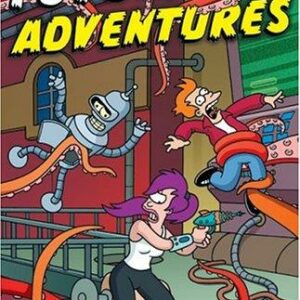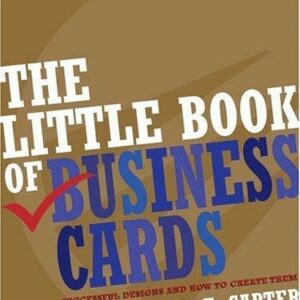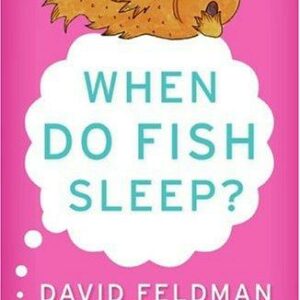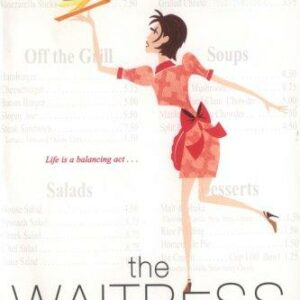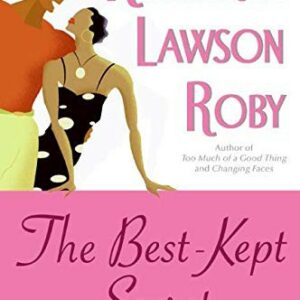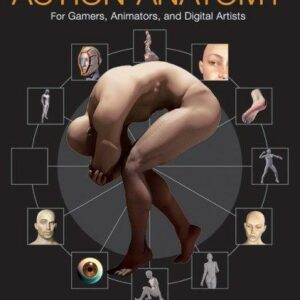The Vampire Archives
$28.95
| Title | Range | Discount |
|---|---|---|
| Trade Discount | 5 + | 25% |
- Description
- Additional information
Description
The Vampire Archives is the biggest, hungriest, undeadliest collection of vampire stories, as well as the most comprehensive bibliography of vampire fiction ever assembled. Dark, stormy, and delicious, once it sinks its teeth into you there’s no escape.
Vampires! Whether imagined by Bram Stoker or Anne Rice, they are part of the human lexicon and as old as blood itself. They are your neighbors, your friends, and they are always lurking. Now Otto Penzler—editor of the bestselling Black Lizard Big Book of Pulps—has compiled the darkest, the scariest, and by far the most evil collection of vampire stories ever. With over eighty stories, including the works of Stephen King and D. H. Lawrence, alongside Lord Byron and Tanith Lee, not to mention Edgar Allan Poe and Harlan Ellison, The Vampire Archives will drive a stake through the heart of any other collection out there.
Other contributors include:
Arthur Conan Doyle • Ray Bradbury • Ambrose Bierce • H. P. Lovecraft • Harlan Ellison • Roger Zelazny • Robert Bloch • Clive BarkerForeword: Kim Newman
Preface: Neil Gaiman
Introduction: Otto Penzler
PRE-DRACULA
Good Lady Ducayne: M. E. Braddon
The Last Lords of Gardonal: William Gilbert
A Mystery of the Campagna: Anne Crawford
The Fate of Madame Cabanel: Eliza Lynn Linton
Let Loose: Mary Cholmondeley
The Vampire: Vasile Alecsandri
The Death of Halpin Frayser: Ambrose Bierce
Ken’s Mystery: Julian Hawthorne
Carmilla: Sheridan Le Fanu
The Tomb of Sarah: F. G. Loring
Ligeia: Edgar Allan Poe
The Old Portrait: Hume Nisbet
The Vampire Maid: Hume Nisbet
TRUE STORIES
The Sad Story of a Vampire: Eric (Count) Stenbock
A Case of Alleged Vampirism: Luigi Capuana
An Authenticated Vampire Story: Franz Hartmann
GRAVEYARDS, CASTLES, CHURCHES, RUINS
Revelations in Black: Carl Jacobi
The Master of Rampling Gate: Anne Rice
The Vampire of Kaldenstein: Frederick Cowles
An Episode of Cathedral History: M. R. James
Schloss Wappenburg: D. Scott-Moncrieff
The Hound: H. P. Lovecraft
Bite-Me-Not Or, Fleur De Fur: Tanith Lee
The Horror at Chilton Castle: Joseph Payne Brennan
The Singular Death of Morton: Algernon Blackwood
The Death of Ilalotha: Clark Ashton Smith
THAT’S POETIC
The Bride of Corinth: Johann Wolfgang Von Goethe
The Giaour: Lord Byron
La Belle Dame Sans Merci: John Keats
HARD TIMES FOR VAMPIRES
Place of Meeting: Charles Beaumont
Duty: Ed Gorman
A Week in the Unlife: David J. Schow
CLASSIC TALES
Four Wooden Stakes: Victor Roman
The Room in the Tower: E. F. Benson
Mrs. Amworth: E. F. Benson
Doctor Porthos: Basil Copper
For the Blood Is the Life: F. Marion Crawford
Count Magnus: M. R. James
When It Was Moonlight: Manly Wade Wellman
The Drifting Snow: August Derleth
Aylmer Vance and the Vampire: Alice and Claude Askew
Dracula’s Guest: Bram Stoker
The Transfer: Algernon Blackwood
The Stone Chamber: H. B. Marriott Watson
The Vampire: Jan Neruda
The End of the Story: Clark Ashton Smith
PSYCHIC VAMPIRES
The Lovely Lady: D. H. Lawrence
The Parasite: Arthur Conan Doyle
Lonely Women Are the Vessels of Time:
Harlan Ellison
SOMETHING FEELS FUNNY
Blood: Fredric Brown
Popsy: Stephen King
The Werewolf and the Vampire: R. Chetwynd-Hayes
Drink My Red Blood: Richard Matheson
Dayblood: Roger Zelazny
LOVE . . . FOREVER
Replacements: Lisa Tuttle
Princess of Darkness: Frederick Cowles
The Silver Collar: Garry Kilworth
The Old Man’s Story: Walter Starkie
Will: Vincent O’Sullivan
Blood-Lust: Dion Fortune
The Canal: Everil Worrell
When Gretchen Was Human: Mary A. Turzillo
The Story of Chugoro: Lafcadio Hearn
THEY GATHER
The Men & Women of Rivendale: Steve Rasnic Tem
Winter Flowers: Tanith Lee
The Man Who Loved the Vampire Lady: Brian Stableford
Midnight Mass: F. Paul Wilson
IS THAT A VAMPIRE?
The Adventure of the Sussex Vampire: Arthur Conan Doyle
A Dead Finger: Sabine Baring-Gould
Wailing Well: M. R. James
Human Remains: Clive Barker
The Vampire: Sydney Horler
Stragella: Hugh B. Cave
Marsyas in Flanders: Vernon Lee
The Horla: Guy De Maupassant
The Girl With the Hungry Eyes: Fritz Leiber
THIS IS WAR
The Living Dead: Robert Bloch
Down Among the Dead Men: Gardner Dozois and Jack Dann
MODERN MASTERS
Necros: Brian Lumley
The Man Upstairs: Ray Bradbury
Chastel: Manly Wade Wellman
Dracula’s Chair: Peter Tremayne
Special: Richard Laymon
Carrion Comfort: Dan Simmons
The Sea Was Wet as Wet Could Be: Gahan Wilson
The Vampire: A Bibliography: Compiled by Daniel Seitler
Otto Penzler is the proprietor of The Mysterious Bookshop in New York City. He was publisher of The Armchair Detective, the founder of the Mysterious Press and the Armchair Detective Library, and created the publishing firm Otto Penzler Books. He is a recipient of an Edgar Award for The Encyclopedia of Mystery and Detection and the Ellery Queen Award by the Mystery Writers of America for his many contributions to the field. He is the series editor of The Best American Mystery Stories of the Year. His other anthologies include Murder for Love, Murder for Revenge, Murder and Obsession, The 50 Greatest Mysteries of All Time, and The Best American Mystery Stories of the Century. He wrote 101 Greatest Movies of Mystery & Suspense. He lives in New York City.Good Lady Ducayne M. E. BRADDON Bella Rolleston had made up her mind that her only chance of earning her bread and helping her mother to an occasional crust was by going out into the great unknown world as companion to a lady. She was willing to go to any lady rich enough to pay her a salary and so eccentric as to wish for a hired companion. Five shillings told off reluctantly from one of those sovereigns which were so rare with the mother and daughter, and which melted away so quickly, five solid shillings, had been handed to a smartly-dressed lady in an office in Harbeck Street, London, W., in the hope that this very Superior Person would find a situation and a salary for Miss Rolleston. The Superior Person glanced at the two half-crowns as they lay on the table where Bella’s hand had placed them, to make sure they were neither of them florins, before she wrote a description of Bella’s qualifications and requirements in a formidable-looking ledger. ”Age?” she asked, curtly. ”Eighteen, last July.” ”Any accomplishments?” ”No; I am not at all accomplished. If I were I should want to be a governess—a companion seems the lowest stage.” ”We have some highly accomplished ladies on our books as companions, or chaperon companions.” ”Oh, I know!” babbled Bella, loquacious in her youthful candor. “But that is quite a different thing. Mother hasn’t been able to afford a piano since I was twelve years old, so I’m afraid I’ve forgotten how to play. And I have had to help mother with her needlework, so there hasn’t been much time to study.” ”Please don’t waste time upon explaining what you can’t do, but kindly tell me anything you can do,” said the Superior Person, crushingly, with her pen poised between delicate fingers waiting to write. “Can you read aloud for two or three hours at a stretch? Are you active and handy, an early riser, a good walker, sweet tempered, and obliging?” ”I can say yes to all those questions except about the sweetness. I think I have a pretty good temper, and I should be anxious to oblige anybody who paid for my services. I should want them to feel that I was really earning my salary.” ”The kind of ladies who come to me would not care for a talkative companion,” said the Person, severely, having finished writing in her book. “My connection lies chiefly among the aristocracy, and in that class considerable deference is expected.” ”Oh, of course,” said Bella, “but it’s quite different when I’m talking to you. I want to tell you all about myself once and forever.” ”I am glad it is to be only once!” said the Person, with the edges of her lips. The Person was of uncertain age, tightly laced in a black silk gown. She had a powdery complexion and a handsome clump of somebody else’s hair on the top of her head. It may be that Bella’s girlish freshness and vivacity had an irritating effect upon nerves weakened by an eight-hour day in that overheated second floor in Harbeck Street. To Bella the official apartment, with its Brussels carpet, velvet curtains and velvet chairs, and French clock, ticking loud on the marble chimney-piece, suggested the luxury of a palace, as compared with another second floor in Walworth where Mrs. Rolleston and her daughter had managed to exist for the last six years. ”Do you think you have anything on your books that would suit me?” faltered Bella, after a pause. ”Oh, dear, no; I have nothing in view at pres- ent,” answered the Person, who had swept Bella’s half-crowns into a drawer, absent-mindedly, with the tips of her fingers. “You see, you are so very unformed—so much too young to be companion to a lady of position. It is a pity you have not enough education for a nursery governess; that would be more in your line.” ”And do you think it will be very long before you can get me a situation?” asked Bella, doubtfully. ”I really cannot say. Have you any particular reason for being so impatient—not a love affair, I hope?” ”A love affair!” cried Bella, with flaming cheeks. “What utter nonsense. I want a situation because mother is poor, and I hate being a burden to her. I want a salary that I can share with her.” ”There won’t be much margin for sharing in the salary you are likely to get at your age—and with your—very—unformed manners,” said the Person, who found Bella’s peony cheeks, bright eyes, and unbridled vivacity more and more oppressive. ”Perhaps if you’d be kind enough to give me back the fee I could take it to an agency where the connection isn’t quite so aristocratic,” said Bella, who—as she told her mother in her recital of the interview—was determined not to be sat upon. ”You will find no agency that can do more for you than mine,” replied the Person, whose harpy fingers never relinquished coin. “You will have to wait for your opportunity. Yours is an exceptional case: but I will bear you in mind, and if anything suitable offers I will write to you. I cannot say more than that.” The half-contemptuous bend of the stately head, weighted with borrowed hair, indicated the end of the interview. Bella went back to Walworth—tramped sturdily every inch of the way in the September afternoon—and “took off” the Superior Person for the amusement of her mother and the landlady, who lingered in the shabby little sitting-room after bringing in the tea-tray, to applaud Miss Rolleston’s “taking off.” ”Dear, dear, what a mimic she is!” said the landlady. “You ought to have let her go on the stage, mum. She might have made her fortune as an actress.” II Bella waited and hoped, and listened for the postman’s knocks which brought such store of letters for the parlors and the first floor, and so few for that humble second floor, where mother and daughter sat sewing with hand and with wheel and treadle, for the greater part of the day. Mrs. Rolleston was a lady by birth and education; but it had been her bad fortune to marry a scoundrel; for the last half-dozen years she had been that worst of widows, a wife whose husband had deserted her. Happily, she was courageous, industrious, and a clever needlewoman; and she had been able just to earn a living for herself and her only child, by making mantles and cloaks for a West-end house. It was not a luxurious living. Cheap lodgings in a shabby street off the Walworth Road, scanty dinners, homely food, well-worn raiment, had been the portion of mother and daughter; but they loved each other so dearly, and Nature had made them both so light-hearted, that they had contrived somehow to be happy. But now this idea of going out into the world as companion to some fine lady had rooted itself into Bella’s mind, and although she idolized her mother, and although the parting of mother and daughter must needs tear two loving hearts into shreds, the girl longed for enterprise and change and excitement, as the pages of old longed to be knights, and to start for the Holy Land to break a lance with the infidel. She grew tired of racing downstairs every time the postman knocked, only to be told “nothing for you, miss,” by the smudgy-faced drudge who picked up the letters from the passage floor. “Nothing for you, miss,” grinned the lodging-house drudge, till at last Bella took heart of grace and walked up to Harbeck Street, and asked the Superior Person how it was that no situation had been found for her. ”You are too young,” said the Person, “and you want a salary.” ”Of course I do,” answered Bella. “Don’t other people want salaries?” ”Young ladies of your age generally want a comfortable home.” ”I don’t,” snapped Bella. “I want to help mother.” ”You can call again this day week,” said the Person, “or, if I hear of anything in the meantime, I will write to you.” No letter came from the Person, and in exactly a week Bella put on her nearest hat, the one that had been seldomest caught in the rain, and trudged off to Harbeck Street. It was a dull October afternoon, and there was a greyness in the air which might turn to fog before night. The Walworth Road shops gleamed brightly through that grey atmosphere, and though to a young lady reared in Mayfair or Belgravia such shop-windows would have been unworthy of a glance, they were a snare and temptation for Bella. There were so many things that she longed for, and would never be able to buy. Harbeck Street is apt to be empty at this dead season of the year, a long, long street, an endless perspective of eminently respectable houses. The Person’s office was at the further end, and Bella looked down that long, grey vista almost despairingly, more tired than usual with the trudge from Walworth. As she looked, a carriage passed her, an old-fashioned, yellow chariot, on cee springs, drawn by a pair of high grey horses, with the stateliest of coachmen driving them, and a tall footman sitting by his side. ”It looks like the fairy godmother’s coach,” thought Bella. “I shouldn’t wonder if it began by being a pumpkin.” It was a surprise when she reached the Person’s door to find the yellow chariot standing before it, and the tall footman waiting near the doorstep. She was almost afraid to go in and meet the owner of that splendid carriage. She had caught only a glimpse of its occupant as the chariot rolled by, a plumed bonnet, a patch of ermine. The Person’s smart page ushered her upstairs and knocked at the official door. “Miss Rolleston,” he announced, apologetically, while Bella waited outside. ”Show her in,” said the Person, quickly; and then Bella heard her murmuring something in a low voice to her client. Bella went in fresh, blooming, a living image of youth and hope, and before she looked at the Person her gaze was riveted by the owner of the chariot. Never had she seen anyone as old as the old lady sitting by the Person’s fire: a little old figure, wrapped from chin to feet in an ermine mantle; a withered, old face under a plumed bonnet—a face so wasted by age that it seemed only a pair of eyes and a peaked chin. The nose was peaked, too, but between the sharply pointed chin and the great, shining eyes, the small, aquiline nose was hardly visible. ”This is Miss Rolleston, Lady Ducayne.” Claw-like fingers, flashing with jewels, lifted a double eyeglass to Lady Ducayne’s shining black eyes, and through the glasses Bella saw those unnaturally bright eyes magnified to a gigantic size, and glaring at her awfully. ”Miss Torpinter has told me all about you,” said the old voice that belonged to the eyes. “Have you good health? Are you strong and active, able to eat well, sleep well, walk well, able to enjoy all that there is good in life?” ”I have never known what it is to be ill, or idle,” answered Bella. ”Then I think you will do for me.” ”Of course, in the event of references being perfectly satisfactory,” put in the Person. ”I don’t want references. The young woman looks frank and innocent. I’ll take her on trust.” ”So like you, dear Lady Ducayne,” murmured Miss Torpinter. ”I want a strong young woman whose health will give me no trouble.” ”You have been so unfortunate in that respect,” cooed the Person, whose voice and manner were subdued to a melting sweetness by the old woman’s presence. ”Yes, I’ve been rather unlucky,” grunted Lady Ducayne. ”But I am sure Miss Rolleston will not disappoint you, though certainly after your unpleas- ant experience with Miss Tomson, who looked the picture of health—and Miss Blandy, who said she had never seen a doctor since she was vaccinated—” ”Lies, no doubt,” muttered Lady Ducayne, and then turning to Bella, she asked, curtly, “You don’t mind spending the winter in Italy, I suppose?” In Italy! The very word was magical. Bella’s fair young face flushed crimson. ”It has been the dream of my life to see Italy,” she gasped. From Walworth to Italy! How far, how impossible such a journey had seemed to that romantic dreamer. ”Well, your dream will be realized. Get yourself ready to leave Charing Cross by the train deluxe this day week at eleven. Be sure you are at the station a quarter before the hour. My people will look after you and your luggage.” Lady Ducayne rose from her chair, assisted by her crutch-stick, and Miss Torpinter escorted her to the door. ”And with regard to salary?” questioned the Person on the way. ”Salary, oh, the same as usual—and if the young woman wants a quarter’s pay in advance you can write to me for a check,” Lady Ducayne answered, carelessly. Miss Torpinter went all the way downstairs with her client, and waited to see her seated in the yellow chariot. When she came upstairs again she was slightly out of breath, and she had resumed that superior manner which Bella had found so crushing. ”You may think yourself uncommonly lucky, Miss Rolleston,” she said. “I have dozens of young ladies on my books whom I might have recommended for this situation—but I remembered having told you to call this afternoon—and I thought I would give you a chance. Old Lady Ducayne is one of the best people on my books. She gives her companion a hundred a year, and pays all the travelling expenses. You will live in the lap of luxury.” ”A hundred a year! How too lovely! Shall I have to dress very grandly? Does Lady Ducayne keep much company?” ”At her age! No, she lives in seclusion—in her own apartments—her French maid, her footman, her medical attendant, her courier.” ”Why did those other companions leave her?” asked Bella. ”Their health broke down!” ”Poor things, and so they had to leave?” ”Yes, they had to leave. I suppose you would like a quarter’s salary in advance?” ”Oh, yes, please. I shall have things to buy.” ”Very well, I will write for Lady Ducayne’s check, and I will send you the balance—after deducting my commission for the year.” ”To be sure, I had forgotten the commission.” ”You don’t suppose I keep this office for pleasure.” ”Of course not,” murmured Bella, remembering the five shillings entrance fee; but nobody could expect a hundred a year and a winter in Italy for five shillings. III From Miss Rolleston, at Cap Ferrino, to Mrs. Rolleston, in Beresford Street, Walworth, London. How I wish you could see this place, dearest; the blue sky, the olive woods, the orange and lemon orchards between the cliffs and the sea—sheltering in the hollow of the great hills—and with summer waves dancing up to the narrow ridge of pebbles and weeds which is the Italian idea of a beach! Oh, how I wish you could see it all, mother dear, and bask in this sunshine, that makes it so difficult to believe the date at the head of this paper. November! The air is like an English June—the sun is so hot that I can’t walk a few yards without an umbrella. And to think of you at Walworth while I am here! I could cry at the thought that perhaps you will never see this lovely coast, this wonderful sea, these summer flowers that bloom in winter. There is a hedge of pink geraniums under my window, mother—a thick, rank hedge, as if the flowers grew wild—and there are Dijon roses climbing over arches and palisades all along the terrace—a rose garden full of bloom in November! Just picture it all! You could never imagine the luxury of this hotel. It is nearly new, and has been built and decorated regardless of expense. Our rooms are upholstered in pale blue satin, which shows up Lady Ducayne’s parchment complexion; but as she sits all day in a corner of the balcony basking in the sun, except when she is in her carriage, and all the evening in her armchair close to the fire, and never sees anyone but her own people, her complexion matters very little. She has the handsomest suite of rooms in the hotel. My bedroom is inside hers, the sweetest room—all blue satin and white lace—white enamelled furniture, looking-glasses on every wall, till I know my pert little profile as I never knew it before. The room was really meant for Lady Ducayne’s dressing-room, but she ordered one of the blue satin couches to be arranged as a bed for me—the prettiest little bed, which I can wheel near the window on sunny mornings, as it is on castors and easily moved about. I feel as if Lady Ducayne were a funny old grandmother, who had suddenly appeared in my life, very, very rich, and very, very kind. She is not at all exacting. I read aloud to her a good deal, and she dozes and nods while I read. Sometimes I hear her moaning in her sleep—as if she had troublesome dreams. When she is tired of my reading she orders Francine, her maid, to read a French novel to her, and I hear her chuckle and groan now and then, as if she were more interested in those books than in Dickens or Scott. My French is not good enough to follow Francine, who reads very quickly. I have a great deal of liberty, for Lady Ducayne often tells me to run away and amuse myself; I roam about the hills for hours. Everything is so lovely. I lose myself in olive woods, always climbing up and up towards the pine woods above—and above the pines there are the snow mountains that just show their white peaks above the dark hills. Oh, you poor dear, how can I ever make you understand what this place is like—you, whose poor, tired eyes have only the opposite side of Beresford Street? Sometimes I go no farther than the terrace in front of the hotel, which is a favorite lounging-place with everybody. The gardens lie below, and the tennis courts where I sometimes play with a very nice girl, the only person in the hotel with whom I have made friends. She is a year older than I, and has come to Cap Ferrino with her brother, a doctor—or a medical student, who is going to be a doctor. He passed his M.B. exam at Edinburgh just before they left home, Lotta told me. He came to Italy entirely on his sister’s account. She had a troublesome chest attack last summer and was ordered to winter abroad. They are orphans, quite alone in the world, and so fond of each other. It is very nice for me to have such a friend as Lotta. She is so thoroughly respectable. I can’t help using that word, for some of the girls in this hotel go on in a way that I know you would shudder at. Lotta was brought up by an aunt, deep down in the country, and knows hardly anything about life. Her brother won’t allow her to read a novel, French or English, that he has not read and approved. ”He treats me like a child,” she told me, “but I don’t mind, for it’s nice to know somebody loves me, and cares about what I do, and even about my thoughts.” Perhaps this is what makes some girls so eager to marry—the want of someone strong and brave and honest and true to care for them and order them about. I want no one, mother darling, for I have you, and you are all the world to me. No husband could ever come between us two. If I ever were to marry he would have only the second place in my heart. But I don’t suppose I ever shall marry, or even know what it is like to have an offer of marriage. No young man can afford to marry a penniless girl nowadays. Life is too expensive. Mr. Stafford, Lotta’s brother, is very clever, and very kind. He thinks it is rather hard for me to have to live with such an old woman as Lady Ducayne, but then he does not know how poor we are—you and I—and what a wonderful life this seems to me in this lovely place. I feel a selfish wretch for enjoying all my luxuries, while you, who want them so much more than I, have none of them—hardly know what they are like—do you, dearest?—for my scamp of a father began to go to the dogs soon after you were married, and since then life has been all trouble and care and struggle for you. This letter was written when Bella had been less than a month at Cap Ferrino, before the novelty had worn off the landscape, and before the pleasure of luxurious surroundings had begun to cloy. She wrote to her mother every week, such long letters as girls who have lived in closest companionship with a mother alone can write; letters that are like a diary of heart and mind. She wrote gaily always, but when the new year began Mrs. Rolles?ton thought she detected a note of melancholy under all those lively details about the place and the people. ”My poor girl is getting homesick,” she thought. “Her heart is in Beresford Street.” It might be that she missed her new friend and companion, Lotta Stafford, who had gone with her brother for a little tour to Genoa and Spezia, and as far as Pisa. They were to return before February; but in the meantime Bella might naturally feel very solitary among all those strangers, whose manners and doings she described so well. The mother’s instinct had been true. Bella was not so happy as she had been in that first flush of wonder and delight which followed the change from Walworth to the Riviera. Somehow, she knew not how, lassitude had crept upon her. She no longer loved to climb the hills, no longer flourished her orange stick in sheer gladness of heart as her light feet skipped over the rough ground and the coarse grass on the mountain side. The odor of rosemary and thyme, the fresh breath of the sea no longer filled her with rapture. She thought of Beresford Street and her mother’s face with a sick longing. They were so far—so far away! And then she thought of Lady Ducayne, sitting by the heaped-up olive logs in the overheated salon—thought of that wizened-nutcracker profile, and those gleaming eyes, with an invincible horror. Visitors at the hotel had told her that the air of Cap Ferrino was relaxing—better suited to age than to youth, to sickness than to health. No doubt it was so. She was not so well as she had been at Walworth; but she told herself that she was suffering only from the pain of separation from the dear companion of her girlhood, the mother who had been nurse, sister, friend, flatterer, all things in this world to her. She had shed many tears over that parting, had spent many a melancholy hour on the marble terrace with yearning eyes looking westward, and with her heart’s desire a thousand miles away.US
Additional information
| Weight | 38.4 oz |
|---|---|
| Dimensions | 1.8900 × 6.9800 × 9.0700 in |
| Imprint | |
| Format | |
| ISBN-13 | |
| ISBN-10 | |
| Author | |
| Audience | |
| BISAC | |
| Subjects | horror books, urban fantasy, zombies, demons, collection, scary books, FIC024000, books for teens, ghost stories, halloween gift, gifts for her, ghost, funny christmas gifts, fiction books, long story short, horror novels, best books, FIC003000, halloween cozy mysteries, vampire book, get well gifts, award winning books, vampire, Ghosts, gothic, horror, Halloween, classic, romance, thriller, fiction, suspense, mystery, vampires, paranormal, supernatural, fantasy, halloween books, science fiction, novels, short stories, anthology, 50th birthday gift ideas |


